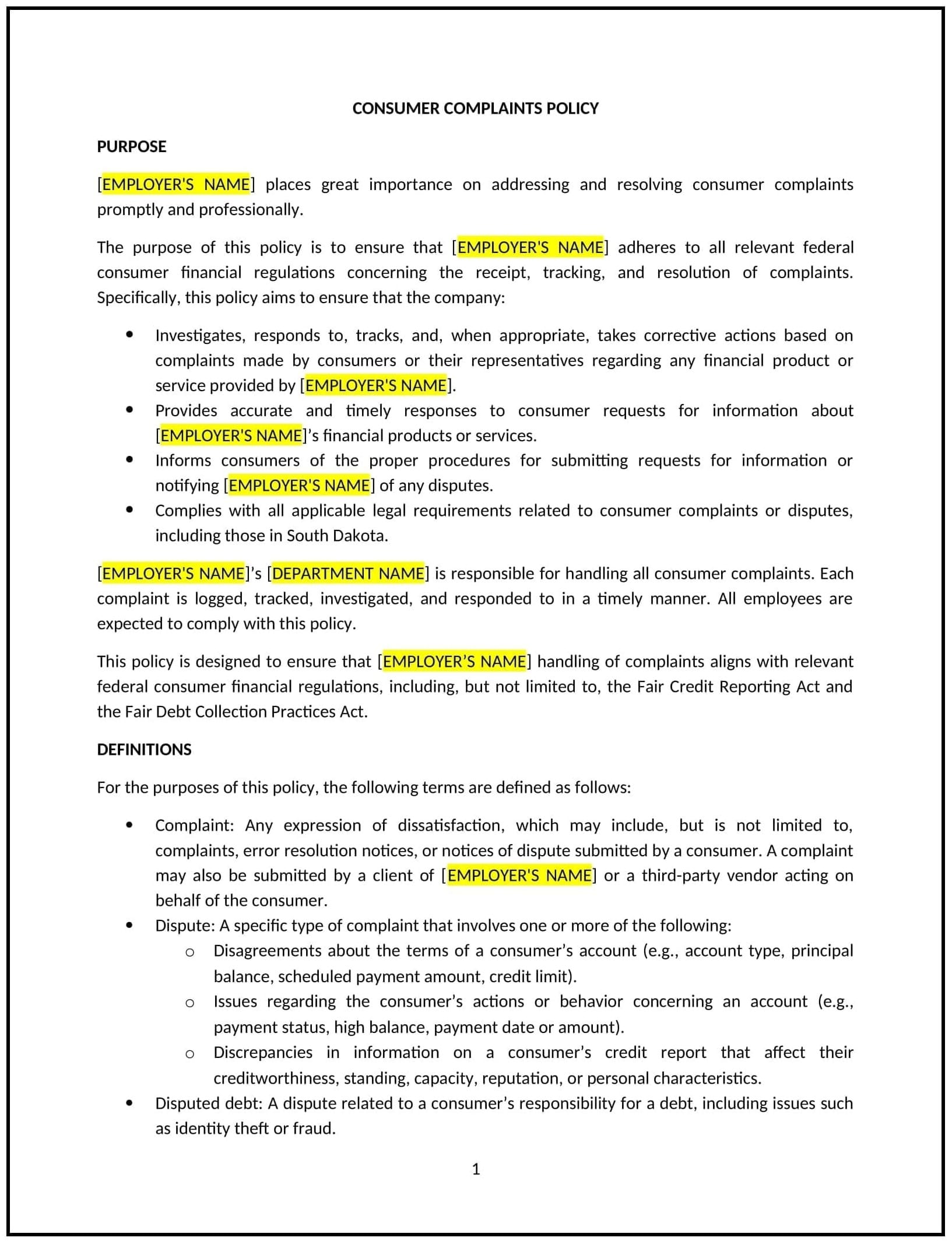Consumer complaints policy (South Dakota): Free template
Got contracts to review? While you're here for policies, let Cobrief make contract review effortless—start your free review now.

Customize this template for free
Consumer complaints policy (South Dakota)
This consumer complaints policy is designed to help South Dakota businesses address customer concerns effectively and professionally. It outlines procedures for receiving, investigating, and resolving complaints to maintain customer satisfaction and trust.
By adopting this policy, businesses can improve customer relations, reduce disputes, and align with general best practices for customer service.
How to use this consumer complaints policy (South Dakota)
- Define complaint handling: Explain what constitutes a consumer complaint and how it should be documented.
- Establish reporting procedures: Provide steps for employees to receive and log complaints, including required details and timelines.
- Outline resolution process: Specify how complaints will be investigated, addressed, and resolved, including escalation procedures.
- Train employees: Educate employees on handling complaints professionally and empathetically.
- Monitor compliance: Regularly review complaint records to ensure adherence to the policy.
- Review and update: Assess the policy annually to ensure it aligns with evolving business needs and customer expectations.
Benefits of using this consumer complaints policy (South Dakota)
This policy offers several advantages for South Dakota businesses:
- Improves customer satisfaction: Demonstrates a commitment to addressing customer concerns promptly and professionally.
- Reduces disputes: Helps resolve issues before they escalate into larger conflicts or legal matters.
- Enhances reputation: Positions the business as customer-focused and responsive to feedback.
- Builds trust: Shows customers that their concerns are taken seriously and handled fairly.
- Supports compliance: Aligns with general best practices for customer service and dispute resolution.
Tips for using this consumer complaints policy (South Dakota)
- Communicate the policy: Share the policy with employees and include it in the employee handbook.
- Provide training: Educate employees on handling complaints professionally and empathetically.
- Monitor compliance: Regularly review complaint records to ensure adherence to the policy.
- Address issues promptly: Take corrective action if complaints are mishandled or unresolved.
- Update regularly: Assess the policy annually to ensure it aligns with evolving business needs and customer expectations.